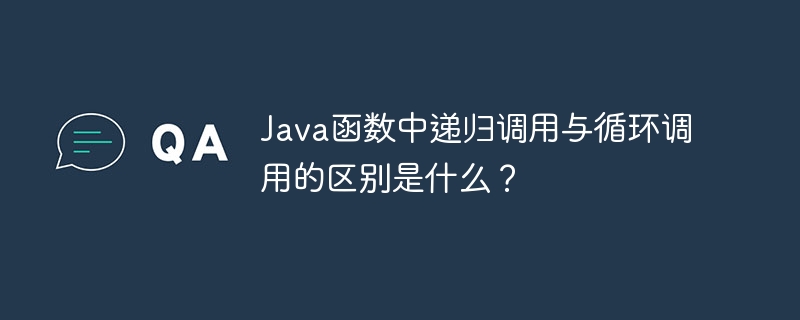
Recursive calling function calls itself until the condition is not met; loop calling uses loop iteration to process data. Recursive calling code is concise, but has poor scalability and may lead to stack overflow; loop calling is more efficient and has good scalability. When choosing a calling method, comprehensive considerations should be made based on data size, scalability, and performance requirements.

The difference between recursive calls and cyclic calls in Java functions
Recursive calls
Recursive calling is a way for a function to call itself. When the condition is met, the recursive call continues until the condition is not met.
Syntax:
public static void recursion(int n) {
if (n == 0) {
return;
}
// 处理数据
recursion(n - 1);
}Features:
Loop call
Loop call is an iterative method that uses loops to process data.
Syntax:
public static void iteration(int n) {
for (int i = 0; i < n; i++) {
// 处理数据
}
}Features:
Practical case:
Calculating factorial
Recursion:
public static int factorialRecursion(int n) {
if (n == 0) {
return 1;
}
return n * factorialRecursion(n - 1);
}Loop:
public static int factorialIteration(int n) {
int result = 1;
for (int i = 1; i <= n; i++) {
result *= i;
}
return result;
}Conclusion:
Both recursive calls and loop calls have their own advantages and disadvantages. When choosing which method to use, you need to consider factors such as the size of your data, scalability, and performance requirements.
The above is the detailed content of What is the difference between recursive calls and cyclic calls in Java functions?. For more information, please follow other related articles on the PHP Chinese website!




